SUMMARY
This is AI generated summarization, which may have errors. For context, always refer to the full article.
![[OPINION] Sensible politics vs secular prayer: How we talk about PNoy’s legacy](https://www.rappler.com/tachyon/2021/08/pnoy-politics-religion-sq.png)
Filipinos like to pass on their history in terms of good and evil. This was the insight put most memorably, if not necessarily originally, by Fernando Zialcita in his essay “An Identity Under Question.” He was criticizing Filipino nationalists’ tendency to demonize all Hispanic, and sometimes all Western, impact on development of Filipino culture. But as often happens with such a perceptive writer, this brief statement applies to many other aspects of our political debates.
We do have a moral, or moralistic, view of our past and present, structured by our particular brand of Hispanized-yet-Malay Catholicism. This is a vision of history as something between morality play and dynastic saga. Or perhaps of history as teleserye — but that would be an insult to teleseryes, which, after all, bring joy to many viewers.
Quasi-religious rhetoric is a key component of the way we process the unexpected death of President Benigno Aquino III. Cory and Ninoy were venerated as patron saints of democracy. Until very recently, criticism against either of them was often treated like blasphemy. It seems like the fate of the Aquino dynasty is to repeatedly die, and return in the form of spouses or sons: a cycle of martyrdom and resurrection that, somewhat disturbingly, is remembered as a renewal of both the Aquino family and the nation. As Ninoy’s death helped propel Cory to the presidency, and Cory’s death was a key driver behind PNoy’s 2010 presidential candidacy and victory, so is PNoy’s recent death seen (by some) as a possible force for united leadership in the opposition.
As election preparations ramp up, the search is on for PNoy’s ideological heir, as he did not leave a biological or conjugal one. No easy task. Aquino often seemed a man out of time, born in the wrong generation. Some supporters say that he was too far ahead of his time, but I argue that there’s something quite old-fashioned, in a good way, about his persona and style of politics. His closest predecessor-in-spirit is probably Elpidio Quirino, who is praised by historians but largely forgotten by the public. Like Aquino, Quirino entered the Palace in the wake of family tragedy, and without a wife. Quirino was a widow rather than a bachelor, but, like Aquino, was seen as a melancholy and aloof figure, unusual among the colorful personalities of Filipino politics.
As we process PNoy’s legacy, I hope we internalize more of his sober, critical spirit when talking about his own life. It’s difficult, I know. We’re so used to mixing politics and religion that we default to religious language, even when neither God nor the Church are being discussed.
Reading coverage of the deaths of leaders in other countries gives examples of how to praise leaders without canonizing them. The public has other choices besides either canonizing or demonizing its politicians. How we choose to tell PNoy’s story now will be critical in the coming years, because our understanding of our past shapes our approach to the future. A balanced approach is essential, because we can then repeat the best parts of his legacy, while rising above his shortcomings.
And there were certainly some of those. PNoy’s term delivered better governance and a growing economy, but these benefits were concentrated among Filipinos who were already rich. There were supposedly more jobs and business to go around, but people still had trouble accessing them because of our ever-faulty transportation system. He could have made an example of Hacienda Luisita by subjecting it to land reform, or at least ensuring better treatment of its farmers. Actually, this is a good reason to hope that his ideological successor will have no familial connection to the Aquinos or Cojuancos. Such a person would likely have an easier time undercutting such cornerstones of dynastic power for the good of the country.
On the other hand, the Aquino administration’s achievements are quite formidable, even unique. Hindsight will only add to their brilliance, once the presence or absence of accompanying spectacle ceases to matter. PNoy’s Tuwid na Daan demonstrated that corruption, which often seems as inevitable as typhoon season, can be rolled back. PNoy accomplished this without the mass layoffs common to the start of new administrations; he believed in changing systems, not purging people. PNoy also showed the powerful Catholic Church, which can make or break rulers, also has to bow to secularization, even on one of its top-priority issues. The Hague Ruling was an instance of a poor, obscure ex-colony taking on a rising superpower — and winning.
It’s tempting to call such accomplishments political miracles. They are not. They were the result of technical expertise, shrewd maneuvering, and sheer determination. Future leaders, and also citizens who wouldn’t consider themselves to be leaders, can emulate these qualities in order to positively change Filipino society at all levels. PNoy’s quiet, “nuts and bolts” style of politics helped demystify the process, and gave us examples of how we can all take part. At the heart of PNoy’s agenda was the belief that Filipinos are more than capable of doing so. After all, PNoy’s distinctive slogan, “Kayo ang boss ko!” implies a sense of responsibility and self-directedness in citizens. As he saw it, his job was to serve the public, not “save” it. He trusted Filipinos to know what was best for themselves. Indeed, one of his most memorable policy achievements, the passage of the Responsible Parenthood Act, was meant to give Filipinos more personal agency, not tell them how to run their lives.
I believe that, at some level, this concept frightened the hell out of many Filipinos. It’s scary to be the boss, when you’ve always been told to obey, scrape by, and patiently pray for rescue. Patience is important, but it should be active rather than passive, directed towards long-term systemic reform. This work is messy and unglamorous, but it’s the only way to achieve real, lasting transformation of the country. As co-bosses, we should work together for the country because we respect ourselves and others, and not because a charismatic leader regularly works us up into brief spasms of sentimental patriotism. The sacrifices we need now, rather than the lives of martyrs, are the sacrifices of old habits and ideas. Instead of offering up our free will and critical thinking to whomever makes the most spectacular promises, we can sacrifice our accustomed position as devotees to political idols.
A good leader is not a savior to pray for, or worse, pray to. Rather, true leadership supports people in taking charge of their future. As more and more Filipinos prefer to keep religion out of politics, let us remember that this goes beyond setting limits on the power of religious institutions. It also means being critical about the influence of religious logic on political thought. If we want to finally be our own bosses, we should take care whenever someone anoints themselves, or someone else, as a national messiah. – Rappler.com
Jamina Vesta Jugo is a PhD candidate in Political Science at the University of Goettingen in Lower Saxony, Germany.
Voices features opinions from readers of all backgrounds, persuasions, and ages; analyses from advocacy leaders and subject matter experts; and reflections and editorials from Rappler staff.
You may submit pieces for review to opinion@rappler.com.
Add a comment
How does this make you feel?
![[OPINION] PNoy: A prophet among us](https://www.rappler.com/tachyon/2021/07/PNoy-prophet-sq.jpg?fit=449%2C449)
![[OPINION] Leni is not our savior](https://www.rappler.com/tachyon/2020/11/mama-mary-robredo-november-18-2020.jpg?fit=449%2C449)
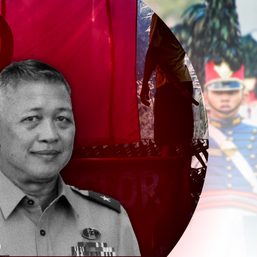
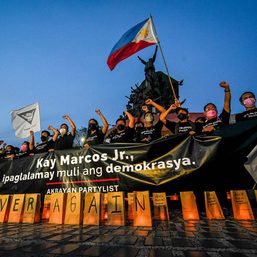
![[Newspoint] The challenge of unsavory company](https://www.rappler.com/tachyon/2024/02/tl-unsavory-company.jpg?resize=257%2C257&crop=238px%2C0px%2C720px%2C720px)
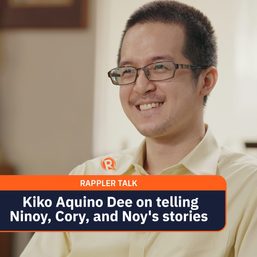


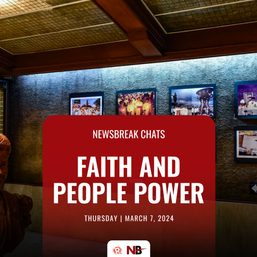
![[Bodymind] Forgiveness, Enrile, and Bongbong Marcos Jr.](https://www.rappler.com/tachyon/2024/03/forgiveness-enrile-bongbong-march-6-2024.jpg?resize=257%2C257&crop=411px%2C0px%2C1080px%2C1080px)
![[Vantage Point] Father and daughter caught in a vise of geopolitics](https://www.rappler.com/tachyon/2024/03/tl-father-daughter-geopolitics.jpg?resize=257%2C257&crop_strategy=attention)
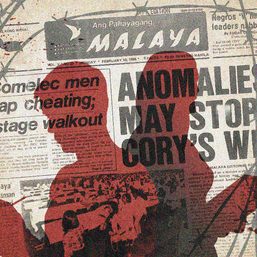
![[Newspoint] Hitting rock bottom](https://www.rappler.com/tachyon/2023/12/Newspoint-hitting-rock-bottom-December-2-2023.jpg?resize=257%2C257&crop=283px%2C0px%2C720px%2C720px)
![[Newspoint] The Ninoy constituency](https://www.rappler.com/tachyon/2023/08/TL-Ninoy-constituency-August-25-2023.jpg?resize=257%2C257&crop=334px%2C0px%2C720px%2C720px)

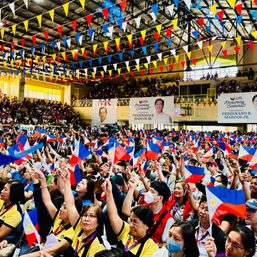
![[EDITORIAL] Ang low-intensity warfare ni Marcos kung saan attack dog na ang First Lady](https://www.rappler.com/tachyon/2024/04/animated-liza-marcos-sara-duterte-feud-carousel.jpg?resize=257%2C257&crop=294px%2C0px%2C720px%2C720px)
![[Free to disagree] How to be a cult leader or a demagogue president](https://www.rappler.com/tachyon/2024/04/TL-free-to-disagree.jpg?resize=257%2C257&crop_strategy=attention)
![[OPINION] Can Marcos survive a voters’ revolt in 2025?](https://www.rappler.com/tachyon/2024/04/tl-voters-revolt-04042024.jpg?resize=257%2C257&crop=251px%2C0px%2C720px%2C720px)
![[Edgewise] Quo vadis, Quiboloy?](https://www.rappler.com/tachyon/2024/03/quo-vadis-quiboloy-march-21-2024.jpg?resize=257%2C257&crop_strategy=attention)
There are no comments yet. Add your comment to start the conversation.